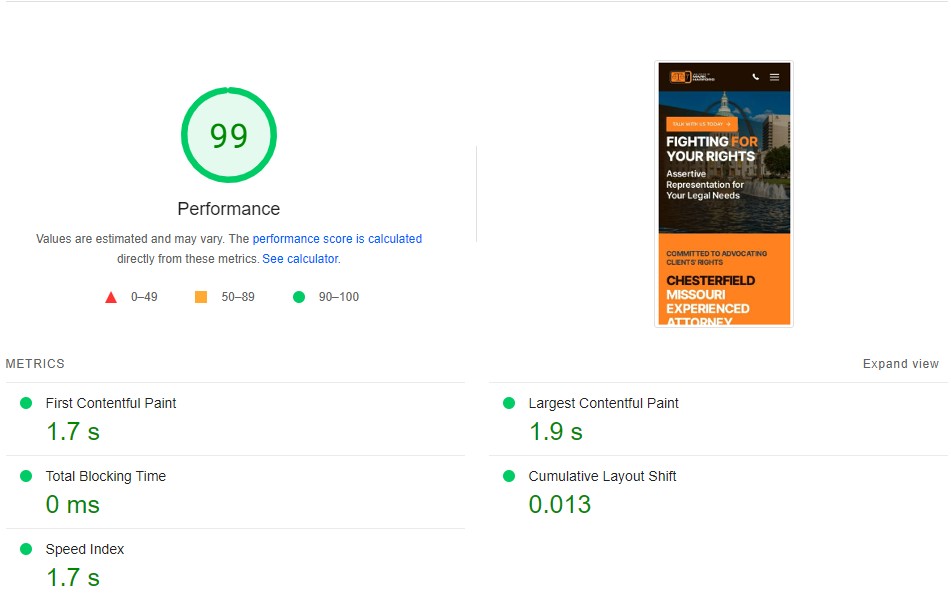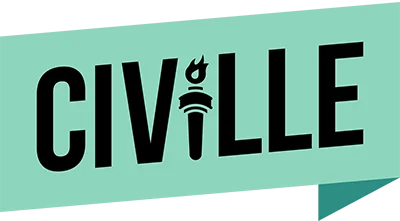
When someone needs legal help, their first instinct is often to turn to the internet. They type their questions into a search engine hoping to find answers and maybe even the right lawyer for their situation. For law firms, understanding what potential clients are searching for online is going to help you get more clients.
At Civille, we understand that the legal industry is competitive, and having a strong online presence is no longer optional—it’s essential. By understanding how people search for legal help, you can optimize your website and content to get your firm to the top of search.
Unpacking the Search Queries: A Window into Client Needs
Every search query typed into a search engine is a digital cry for help and assistance. Understanding what people are searching for is the big first step in building any content strategy. Let’s dissect the most common types of searches in legal:
1. Problem-Focused Searches: “Help! I Need Answers!”
These searches are often raw, unfiltered expressions of distress, framed as questions or statements reflecting a specific legal predicament. Examples include:
- “What to do after a car accident?” – This query suggests a sense of urgency and confusion, a need for immediate guidance following a traumatic event.
- “Can I sue my landlord?” – This indicates a potential legal dispute, a desire to understand rights and explore legal options.
- “I need a divorce lawyer.” – This signifies a life transition, a need for legal counsel and support during a difficult time.
User Intent: These searches reveal a desire for information and reassurance. Potential clients are looking for answers to questions, guidance on what steps to take, and assurance that their problems have legal solutions.
2. Location-Based Searches: “Where Can I Find Help Near Me?”
The desire for local representation is strong. People want lawyers who are accessible, understand the local laws, and can provide personalized attention. Searches like these are incredibly common:
- “Personal injury lawyer in [city]” – This shows a clear intent to find a lawyer within a specific geographic area, emphasizing the importance of local SEO.
- “DUI attorney near me” – This implies an immediate need for legal assistance and a preference for lawyers in close proximity.
User Intent: These searches indicate a desire for convenience and accessibility. Potential clients want to find lawyers who are conveniently located, easy to reach, and familiar with the local legal system.
3. Specialty-Focused Searches: “I Need an Expert in My Corner”
Legal issues are often complex and require specialized knowledge. Potential clients recognize this and actively seek out lawyers with expertise in their specific area of need:
- “Criminal defense attorney” – This suggests a serious legal situation requiring a lawyer with specialized knowledge of criminal law and procedure.
- “Estate planning lawyer” – This indicates a need for assistance with long-term legal planning, requiring a lawyer with expertise in wills, trusts, and probate.
- “Medical malpractice lawyer” – This implies a potential claim for negligence, requiring a lawyer with experience in medical malpractice litigation.
User Intent: These searches demonstrate a desire for specialized knowledge and experience. Potential clients are looking for lawyers who have a deep understanding of their specific legal issue and a proven track record of success in that area.
4. Solution-Oriented Searches: “How Do I Solve This Problem?”
Beyond simply identifying their legal problem, potential clients are actively seeking solutions. They want to understand the process, the potential outcomes, and the steps involved in resolving their legal issue:
- “How to file for child custody” – This reveals a desire for practical guidance on navigating the legal process of child custody.
- “How much is a speeding ticket in [state]?” – This indicates a need for specific information about the legal consequences of a traffic violation.
User Intent: These searches demonstrate a desire for practical information and actionable advice. Potential clients are looking for clear explanations, step-by-step guidance, and answers to specific questions about their legal situation.
5. Lawyer-Specific Searches: “I’ve Heard Good Things About This Lawyer”
Word-of-mouth referrals and online reputation play a significant role in influencing potential clients. Sometimes, individuals have already heard about a specific lawyer or firm and are actively seeking more information:
- “[Lawyer’s name] [city]” – This suggests a potential client has received a referral or has come across the lawyer’s name elsewhere and wants to find their contact information.
- “[Law firm name] reviews” – This indicates a desire to research the firm’s reputation and read reviews from previous clients before making a decision.
User Intent: These searches demonstrate a desire for validation and reassurance. Potential clients are looking for confirmation that the lawyer or firm they are considering is reputable, trustworthy, and capable of handling their case.
How Long Does it Take SEO to Work for My Law Firm?
Understanding User Intent: The Key to Online Success
Understanding how potential clients search for legal assistance will help your firm establish a strong online presence. By recognizing the different types of search queries and the intent behind them, you can tailor your online strategy to meet those needs. Use relevant keywords in your website content that potential clients are likely to use when searching for legal services.
Beyond keywords, focus on creating high-quality, informative content that speaks directly to common legal questions and concerns within your practice areas. Remember that many people searching for legal help are looking for local representation. Make sure your website and online profiles are optimized for local search. This will make it easier for searchers in your area to find you when searching for local lawyers.
If your firm specializes in a particular area of law, highlight that expertise on your website and in your content. This will help attract clients who are looking for lawyers with experience in your practice area. Make sure your content provides good answers to common legal questions that your potential clients are asking, not just when they are looking for a lawyer, but even before.
How Long-Tail Content Can Improve Your Firm’s Site
The Importance of Keywords
Understanding search intent is going to help you succeed in legal marketing. Keywords are the words and phrases people use in search engines. By incorporating relevant keywords into your website content, blog posts, and online profiles, you can increase your visibility in search results.
For example, if your law firm specializes in family law in Chicago, you’ll want to make sure your website and content include keywords like “family lawyer Chicago,” “divorce attorney Chicago,” “child custody lawyer Chicago,” and other relevant terms.
Beyond Keywords: Providing Valuable Content
While keywords are essential, they’re only part of the equation. Search engines like Google prioritize websites that offer valuable, informative content that can answer users’ questions. It’s also seeing how users interact with your site once they arrive. Do they stay for a while? Do they go to other resources on your site? All of these are signals to Google that your page is relevant to the user’s search.
This is where content marketing comes in. By creating high-quality blog posts and other content that addresses common legal questions and concerns, you are going to show up for more searches. The better you answer commonly asked questions in your field, the more traffic you will get, and the more relevant that traffic is, the higher your chances are of converting those visitors into clients.
For instance, if you see a lot of searches for “What to do after a car accident,” you could write a comprehensive blog post that provides step-by-step guidance on what to do after an accident, including legal considerations. This not only provides valuable information to potential clients but also signals to Google and other search engines that your firm as an authority in personal injury law.
The Role of Website Speed and User Experience
People expect websites to load quickly and be easy to navigate. If your website is slow or difficult to use, potential clients may become frustrated and leave before they even learn about your services.

Google also considers website speed and user experience when ranking websites in search results. A slow-loading website can hurt your search engine rankings regardless of the quality of your content. Google is not only trying to serve up the best content, it’s also trying to serve up the best experience and if your site isn’t hitting the mark with its page speed, then you might not get found.
Read More: 10 Ways to Improve Law Firm Website Page Speed
Civille specializes in building fast, high-performing websites for law firms that are optimized for both search engines and user experience. Our websites are designed to load quickly, provide a seamless user experience, and showcase your firm’s expertise.
Don’t just measure your site’s speed on your computer. More and more people are using their smartphones to search for information online, including legal services. Keep your website mobile-friendly so that all potential clients have a positive experience no matter where they see you. A mobile-friendly website also adapts to different screen sizes and provides a seamless user experience on any device. This isn’t just important to the people visiting your site, but it’s also important to Google and a kye ranking factor.
Civille: Your Partner in Digital Marketing
At Civille, we understand the unique challenges law firms face in attracting and retaining clients in the digital age. We offer a comprehensive suite of digital marketing services designed tand tailored to law firms.
Our services include:
- Website design and development: We build fast, high-performing websites that are optimized for search engines and user experience.
- Search engine optimization (SEO): We help your website rank higher in search, making it easier for potential clients to find you.
- Content marketing: We create valuable, informative content that attracts potential clients and keeps them engaged.
- Google Business Profile management: We optimize your Google Business Profile to improve your visibility in local search results.
- Paid advertising: We manage targeted advertising campaigns to reach potential clients actively searching for legal services.
- Lead qualification: We help you identify and qualify leads, so you can focus on connecting with potential clients who are most likely to convert.
Contact us today to learn more about how we can help you grow your practice.





